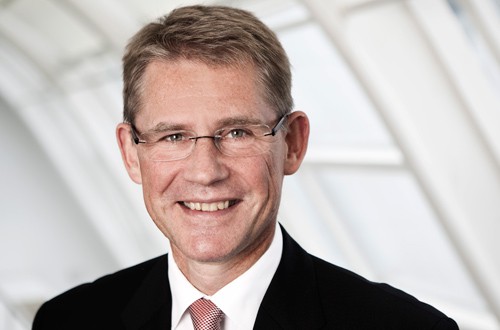
A stricter application of new medicine regulations in the US is threatening pharma innovation, according to Novo Nordisk’s CEO Lars Rebien Sorensen.
Sorensen said “historical scandals” that led to drugs being withdrawn from market have made regulators, such as the US FDA, more risk averse when assessing new products, making it harder for medicines to gain approval.
It’s a situation that has arguably affected Denmark-based pharma company Novo directly, with the FDA deciding not to recommend the company’s new long-acting insulins Tresiba and Ryzodeg in March this year due to a lack of data on the cardiovascular safety of the diabetes treatments.
This was despite approvals for the products in Europe and Japan, and some healthcare commentators have suggested the FDA has become “increasingly sensitised” to cardiovascular data for diabetes medicines following the controversy over GlaxoSmithKline’s Avandia (rosiglitzone), which in 2011 was withdrawn in Europe and had its licence limited in the US due to safety issues.
It could now be two years before Novo is able to provide the FDA with adequate data for recommendation, and this inability to reach patients in the world’s biggest pharma market sets a dangerous precedent for the industry, according to Sorensen.
“The United States is paying the bill for innovation, and prices [in the country] are enough to cover innovation of new drugs for rest of the world,” he said,
“However, this is becoming increasingly under pressure, as it is more difficult to have new drugs reimbursed in the US.”
This could harm the industry’s ability to put money into innovation, especially at a time when the current economic crisis has meant many European countries are unable to pay high prices for new medicines.
Sorensen also questioned the merit of different regulatory systems for different regions, claiming that pharma companies cannot afford to separately develop their drugs for the US, Europe and Japan.
He posed the idea of a global system for drug regulation, saying it was especially important as emerging countries, such as China and Brazil, are increasing their self-regulation efforts, leading to prolonged approval processes for drugs in those territories.
Sorensen’s warning comes one month after a similar comment from Boehringer Ingelheim’s Andreas Barner about the health technology assessment (HTA) situation in Europe.
Speaking at the Germany-based pharma company’s annual conference, he said that German research was under threat as regulators in the country did not allow the company to sell new drugs at a price that adequately recouped research costs. “We cannot conduct research in Germany and sell at Greek prices,” he concluded.




